The Dutch M113 C&V and its 25mm Oerlikon cannon: a report

×
![]()
The article below centres on the M113 C&V (Commando en Verkenning; sometimes abbreviated C&R for Command and Reconnaissance), a vehicle more commonly known in Anglophone publications after its Canadian nickname, the Lynx.
As part of the American-style reconnaissance battalion operated by the Dutch Army, the M113 C&V replaced the M38 "Nekaf" jeep.
With a total of 266 bought in 1966, the original vehicles were equipped with an M2 .50 and FN MAG.
In 1974, all 266 vehicles were re-equipped with the Oerlikon 25mm cannon. All in all, not a bad upgrade over the WWII-style jeeps used some 9 years prior.
The vehicle would serve until 1999, gradually being replaced a few years earlier by the YPR-765 pri until the Fennek reconnaissance vehicle was procured.
Below, the rapid changes to the recon platoon are illustrated as per the relevant manuals :
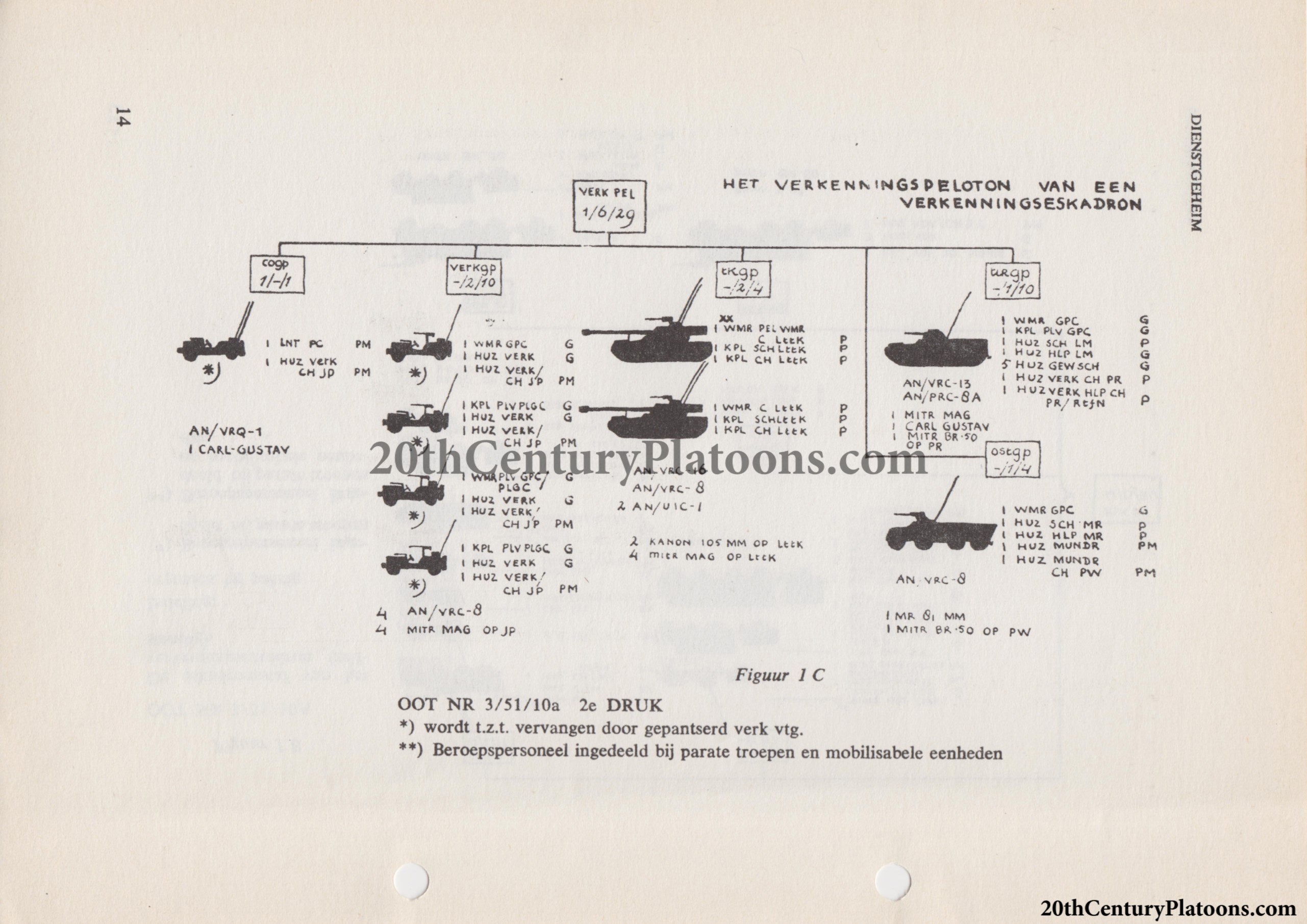
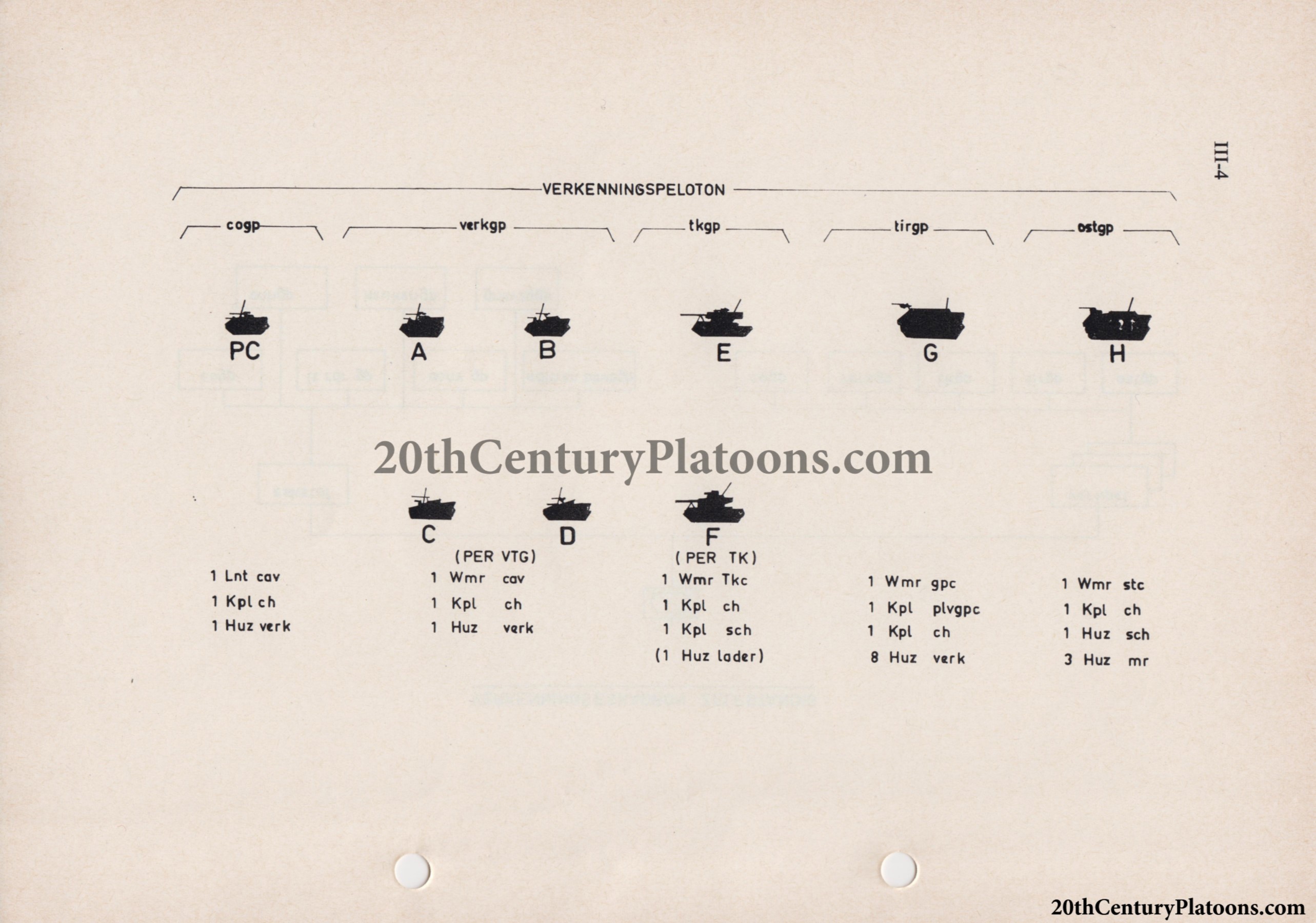
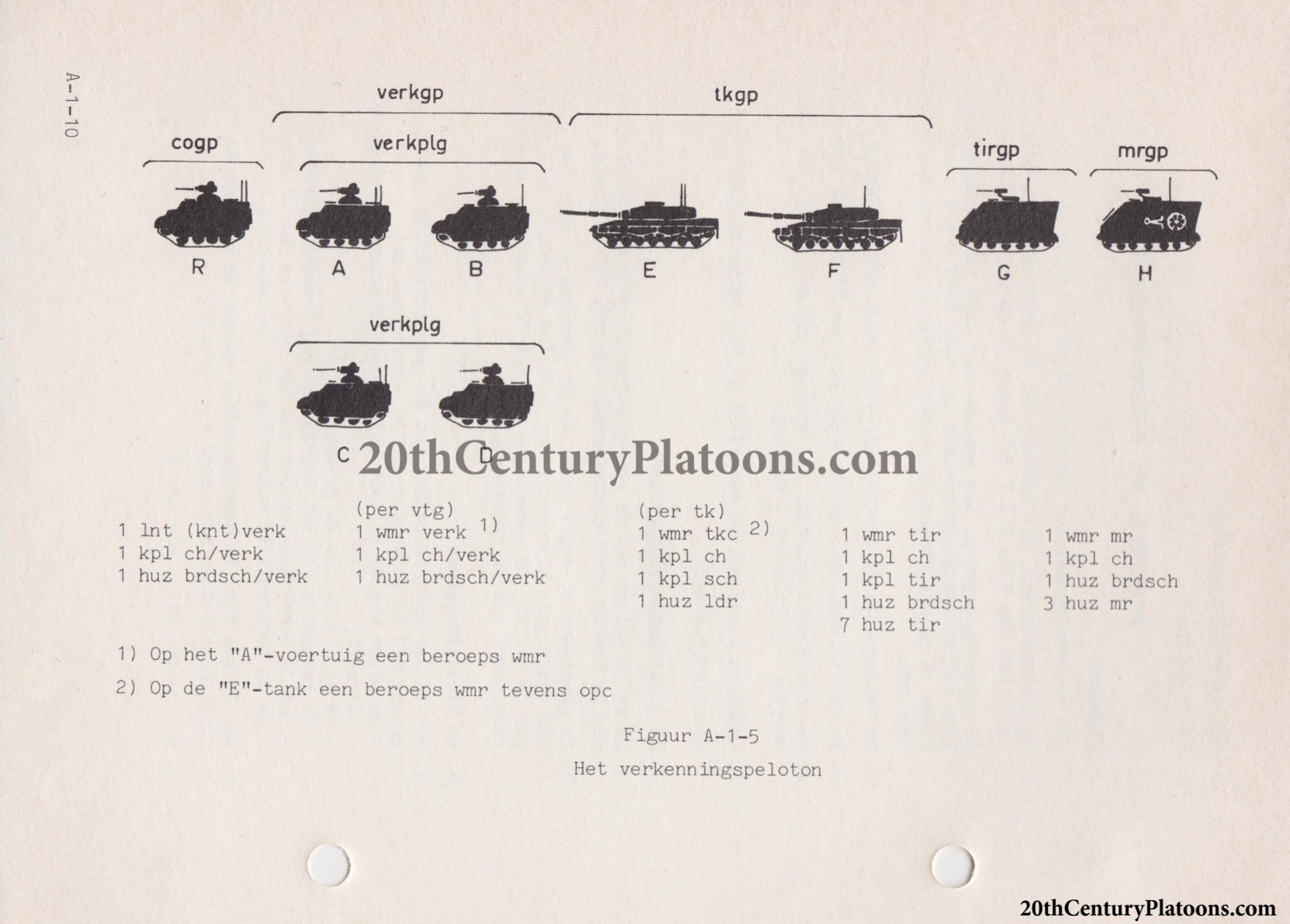
For a final bit of context, the specifications of the M113 C&V were as follows:
| Carrier Co/Verk M113 CenV m/kn 25 mm | |
|---|---|
| Crew | 3 |
| Length | 480 cm |
| Width | 227 cm |
| Height | 273 cm |
| Ground clearance | 40 cm |
| Weight | 8.130 kg |
| Ground pressure | 0.48kg/cm2 |
| Fuel capacity | 290 litres |
| Speed | 67 km/h |
| Amphibious speed | 6.5 km/h |
| Range | approx. 460 km |
| Incline | 60% |
| Vertical obstacle | 61 cm |
| Trench crossing | 147 cm |
| Turning radius | 6.4 m |
| Engine | GMC 6V53 |
| Horsepower | 215 hp at 2800 rpm |
| Armour | Aluminium |
| Front | 32-44mm |
| Top | 32mm |
| Underside | 25mm |
| Side | 19-32mm |
| Rear | 32mm |
| Armament | Oerlikon KBA B 02 25mm |
| Rate of fire | 570 rds/min |
| Elevation | -12°/+52° |
| Ammunition | 200 rounds ready, 250 rounds in hull |
By 1969, the Dutch Army had not yet decided on the calibre for its recon vehicles, with the 20mm and 25mm being the primary contenders. As such, various demonstrations by manufacturers were attended, with the document below illustrating one such demonstration.
With all that being said, it is time to consider the document central to this article, that is, Report No. 2963 on the presentation of the 25mm Oerlikon Weapon System for NATO on May 20, 1969 at Ochsenboden Works Firing Range. as found under index Nationaal Archief, Den Haag, Inspecties van de Wapens en Dienstvakken van de Koninklijke Landmacht, nummer toegang 2.13.158, inventarisnummer 1170: Stukken betreffende het 25 mm wapensysteem voor pantservoertuigen. 1969
Report No. 2963
Although the document speaks for itself and requires no translation, it is worth pointing out the performance of the 25mm round, as this was indeed the main point of the demonstation.Firing HEI rounds of both 20mm and 25mm calibre at a 2mm aluminium alloy plate with three fir-wood plates 1.3 metres behind it arranged per the sketch below, the 20mm round produced some 126 penetrations, with the 25mm HEI nearly doubling that figure with 234 penetrations.
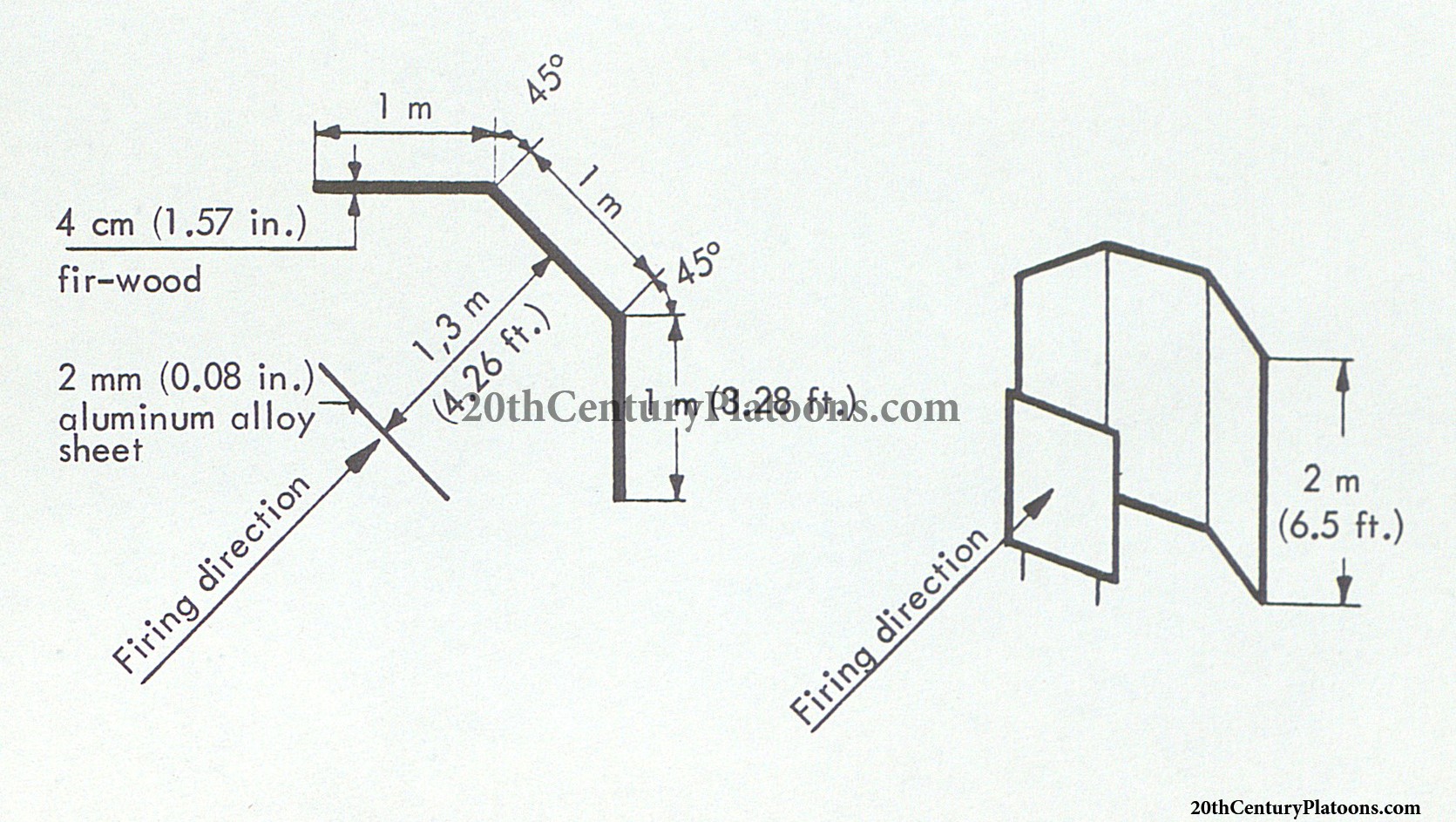
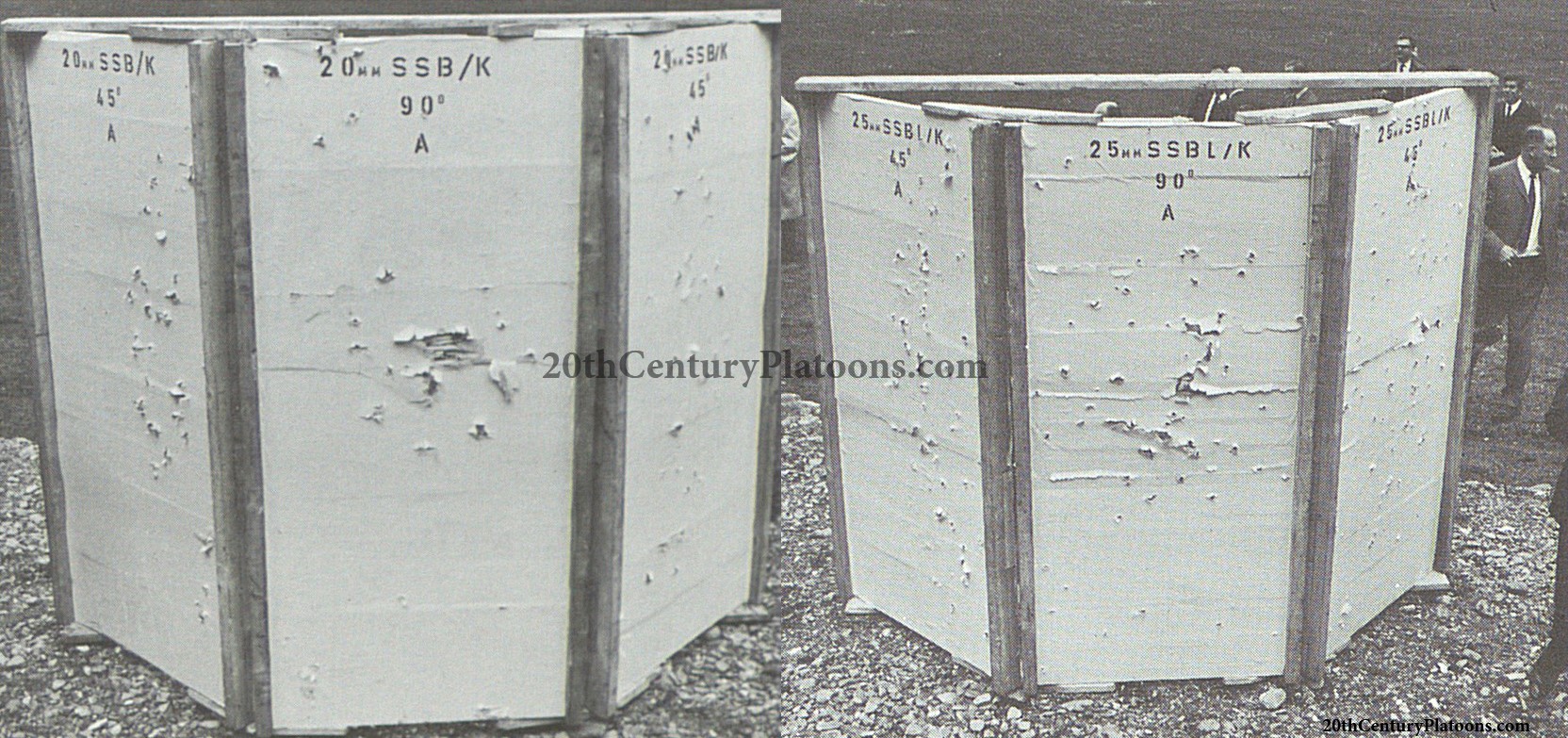
Similarly, the power of 25mm APHEI is demonstrated on a 25mm plate angled at 35 degrees at a distance of 100 metres, and 35mm plate entirely vertical at the same distance.
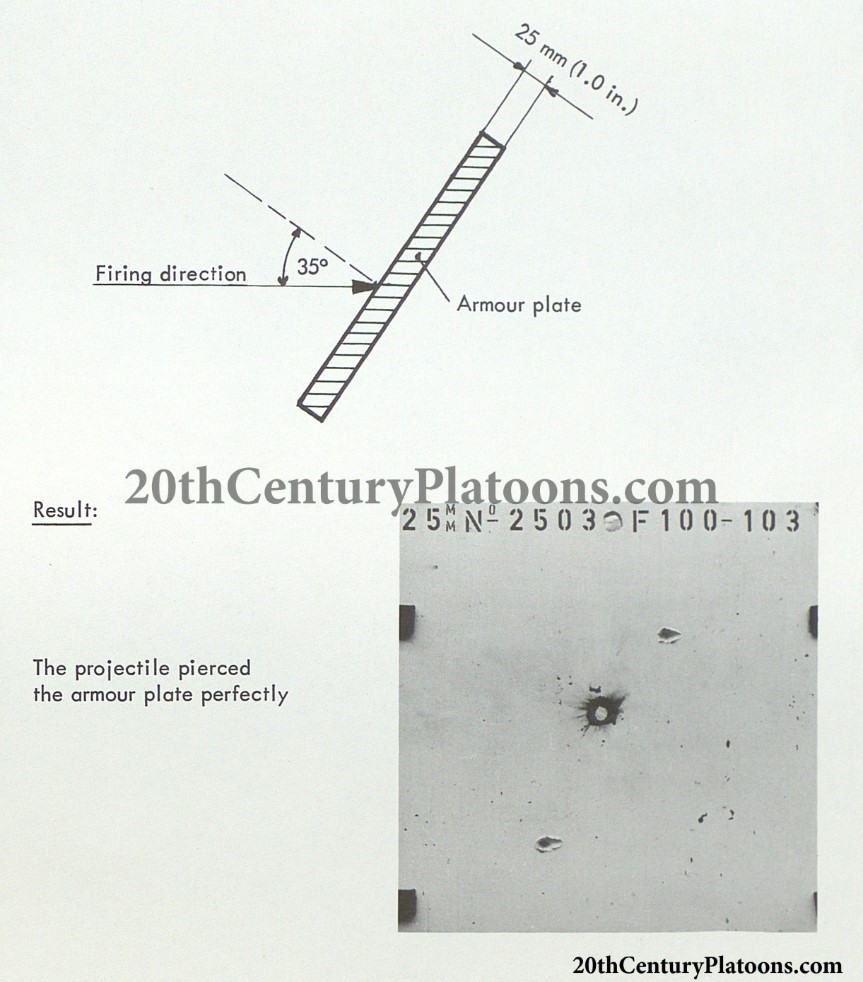
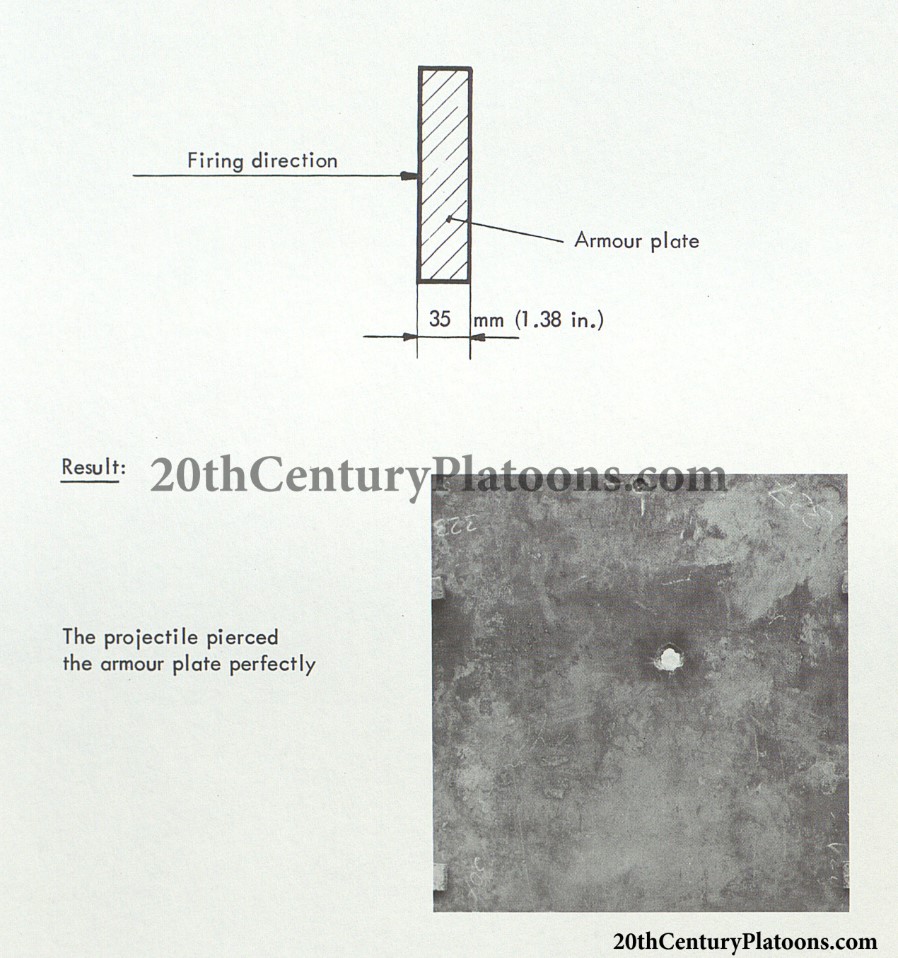
Once again, not a bad upgrade over an FN MAG on a jeep...
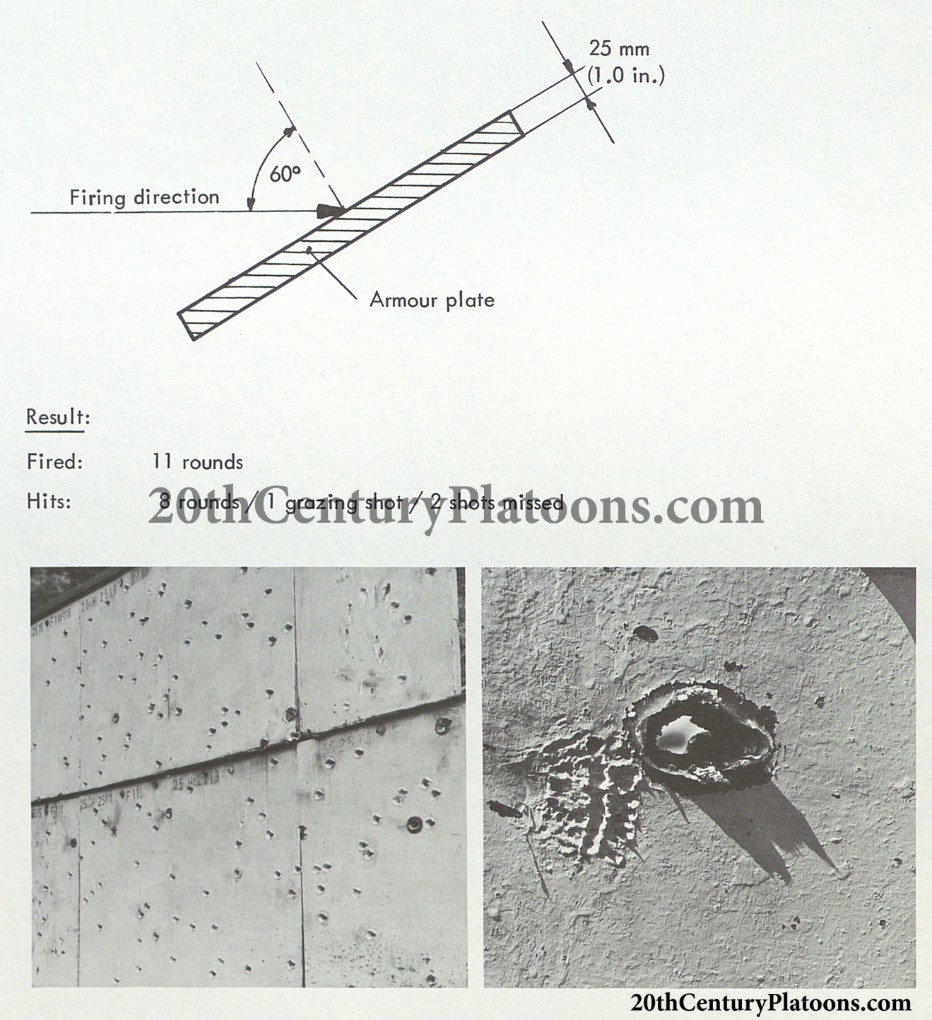
Original Document


















